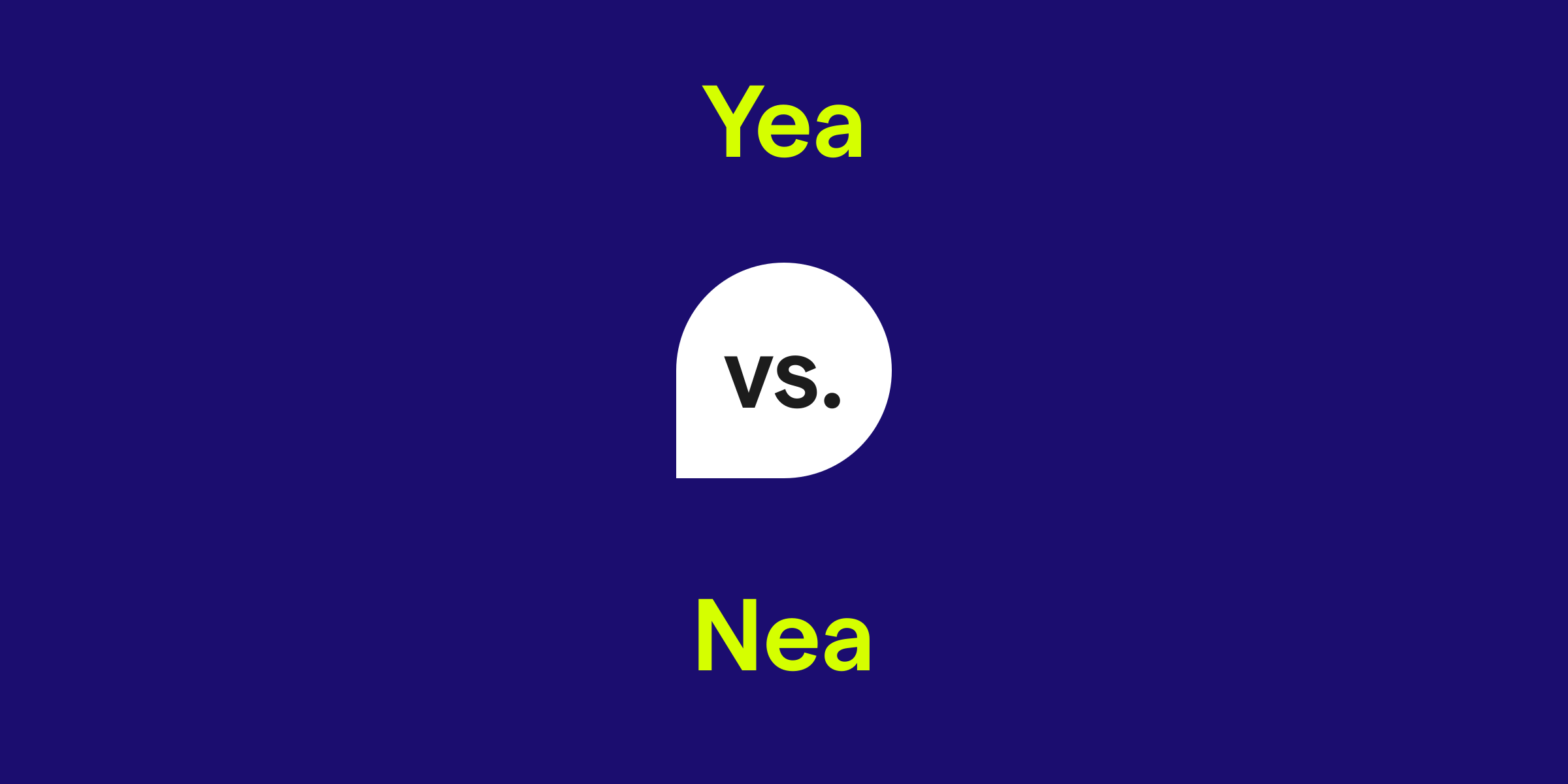Yea vs. Nea: What's the Difference?
Yea and nea are terms often used to express agreement or dissent, typically in a formal voting context. Yea indicates affirmative support or a positive vote, essentially meaning 'yes'. On the other hand, nea signifies a negative response or vote, similar to 'no'. These terms are most commonly encountered during roll call votes in legislative environments.

How do you use the word yea in a sentence?
Use the word yea when you want to express affirmation or agreement, especially in a formal voting situation. It is synonymous with 'yes' but carries a more archaic and formal tone, indicating a strong affirmation. Yea is frequently used in legal, political, and procedural texts.
Examples of yea in a sentence
- When the chairperson called for votes, the members responded with a resounding yea.
- The decision was made when the majority of the board voiced yea.
- In old literature, characters often proclaim yea to show their agreement.
How do you use the word nea in a sentence?
Nea is used to indicate a negative response or rejection and is often associated with formal voting processes. Similar to 'no', nea carries a formal and somewhat outdated tone, signaling dissent. It is especially relevant in contexts where archaic or traditional language is preferred.
Examples of nea in a sentence
- Despite the persuasive speech, a significant number of legislators voted nea.
- When asked if they supported the amendment, they replied with a firm nea.
- Historical documents often recorded votes as yea or nea.
Yea and nea definition, parts of speech, and pronunciation
Yea definition:
Yea is an adverb used as a formal way to say 'yes', especially when voting affirmatively in legislative proceedings.
Yea parts of speech:
Yea pronunciation:
Yea is pronounced as /yeɪ/.
Nea definition:
Nea is an adverb used to express a negative vote or refusal, in formal settings such as parliamentary or legislative voting.
Nea parts of speech:
Nea pronunciation:
Nea is pronounced as /niː/. Due to regional variations, some may pronounce it as /neɪ/.
Yea is an adverb used as a formal way to say 'yes', especially when voting affirmatively in legislative proceedings.
Yea parts of speech:
- Adverb: As an adverb, yea signifies agreement or affirmation; "The senator voted yea on the new law."
Yea pronunciation:
Yea is pronounced as /yeɪ/.
Nea definition:
Nea is an adverb used to express a negative vote or refusal, in formal settings such as parliamentary or legislative voting.
Nea parts of speech:
- Adverb: As an adverb, nea means the rejection of a proposal; "She cast her vote as nea, standing firmly against the motion."
Nea pronunciation:
Nea is pronounced as /niː/. Due to regional variations, some may pronounce it as /neɪ/.
Yea vs. nea in a nutshell
Yea and nea serve as formal terms for expressing affirmative and negative stances respectively, primarily in voting scenarios. Yea stands for agreement and is equivalent to 'yes', while nea indicates disagreement, akin to 'no'. Both terms have a strong association with legislative processes and traditional language use. Understanding the proper context and pronunciation of yea and nea can enhance clarity in formal communication, especially during decision-making procedures.
Get AI Writing Assistance Wherever You Type
Make sure your vocabulary is on point and every punctuation mark is in the right place, no matter where you’re working. Grammarly works across more than 1 million websites and apps so you can improve your writing without copying, pasting, or breaking focus.

More Commonly Confused Words
Interest piqued? Pore (not pour) over other commonly confused words to help your writing reach peak (not peek) performance.